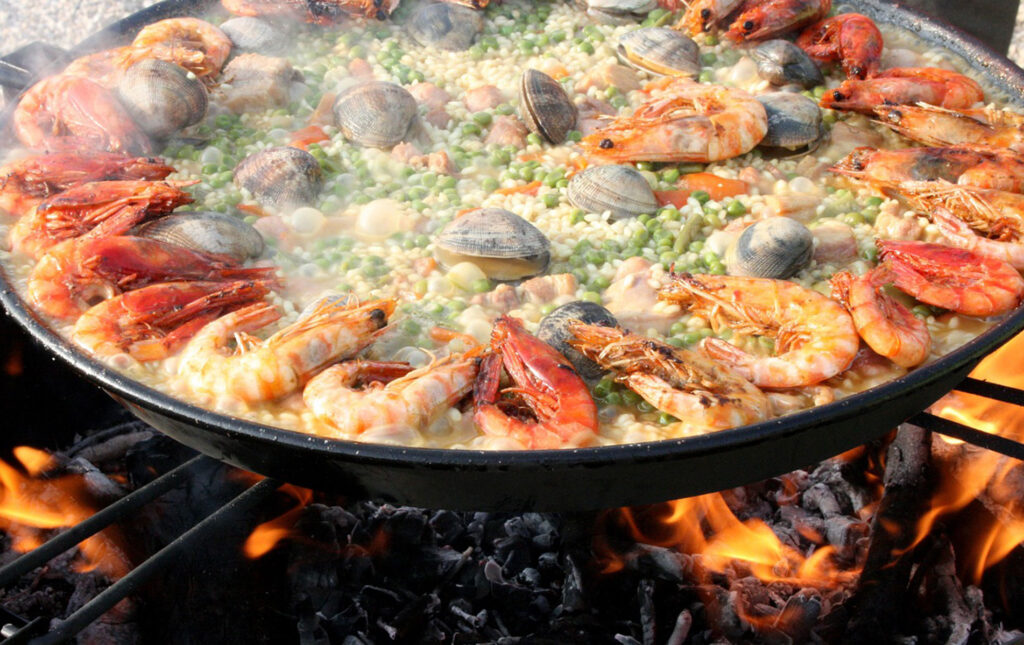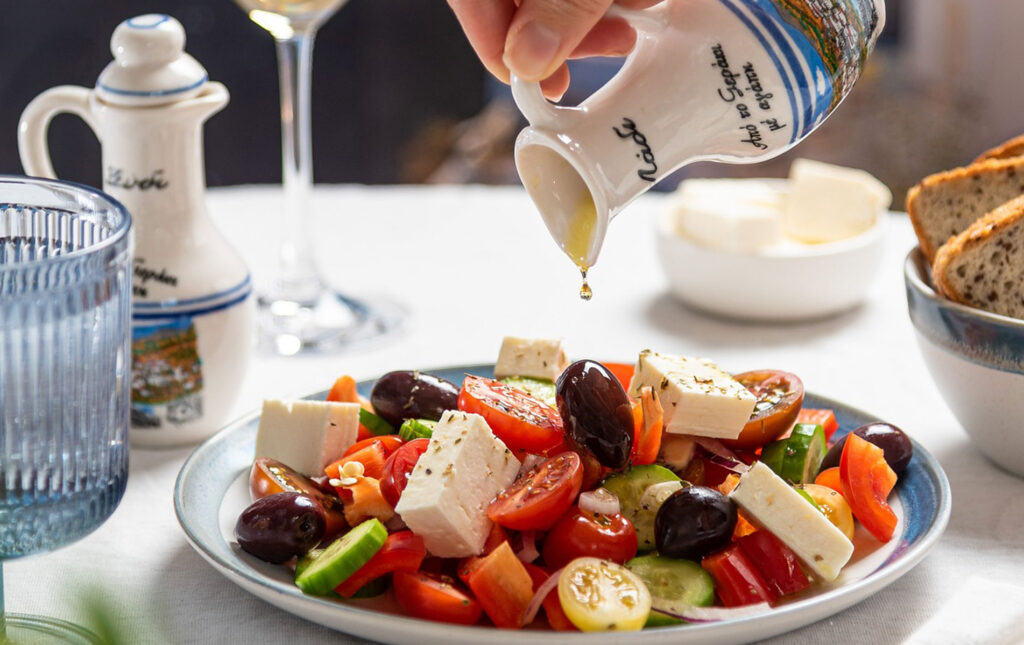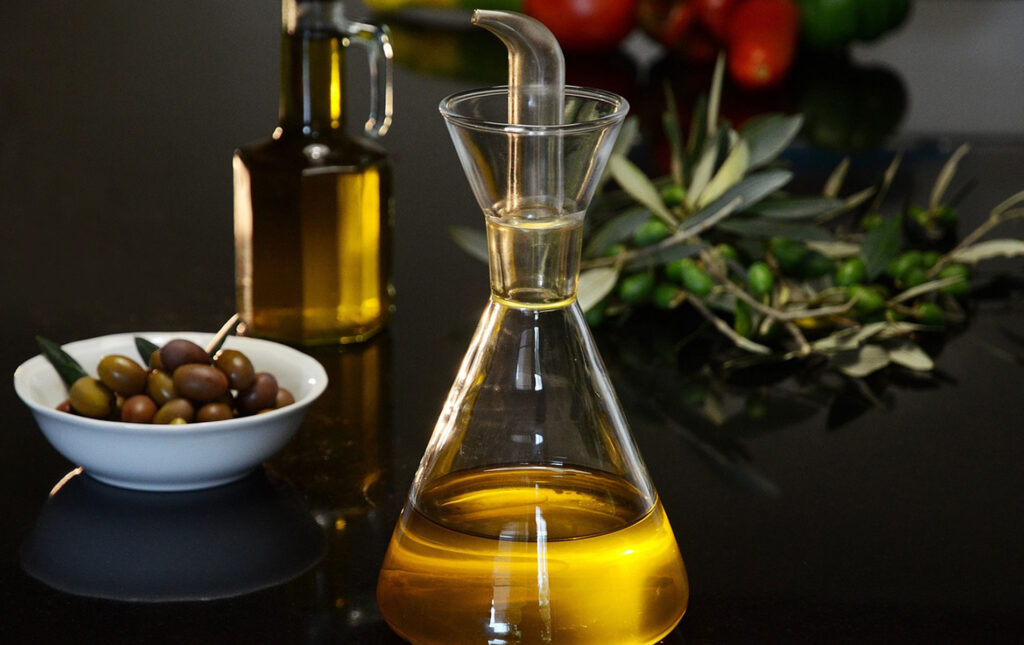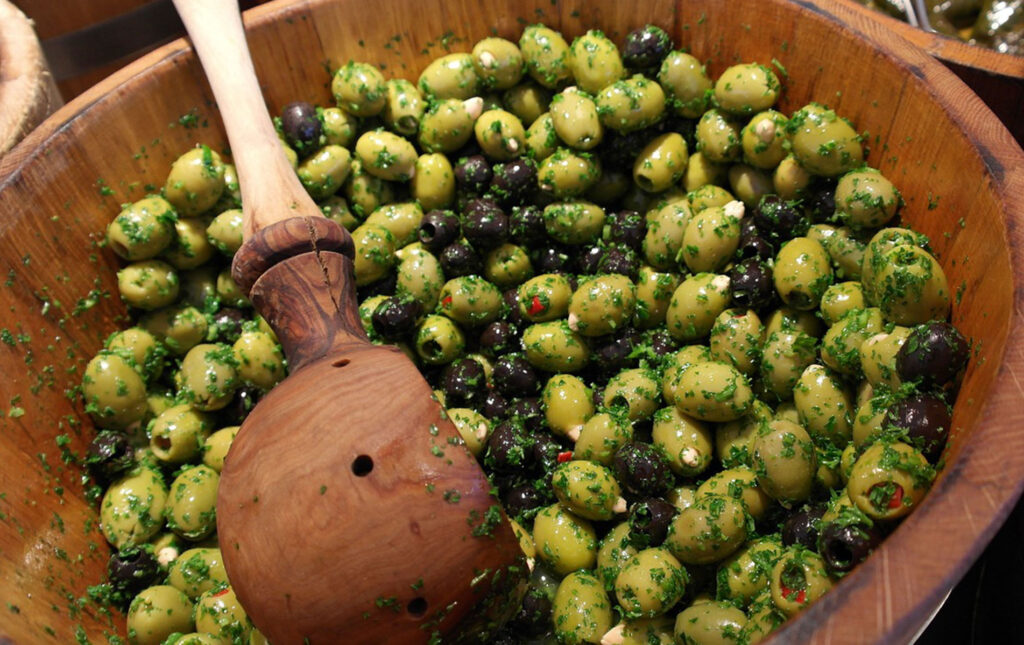Mediterranean Diet, Key Ingredients, and Cooking Tips: One of the healthiest diets in the world is the Mediterranean diet, and its health benefits do not solely stem from the use of fresh ingredients in the cuisine. The way in which food is prepared and consumed in the Mediterranean region is also a key factor in its health benefits. Here are some key ingredients that make Mediterranean food so healthy and delicious:

Mediterranean Diet: Key Ingredients
1. Olive Oil
Olive oil is a staple ingredient in Mediterranean cooking and for good reason. It’s high in monounsaturated fats, which can help reduce the risk of heart disease and stroke. Furthermore, the Mediterranean diet contains high levels of antioxidants, which can aid in reducing inflammation and shielding against cancer.

2. Fresh Fruits and Vegetables
The Mediterranean diet emphasizes the consumption of a variety of fresh fruits and vegetables that are abundant in vitamins, minerals, and fiber. These nutrient-dense foods can help reduce the risk of chronic diseases like diabetes, heart disease, and certain cancers.

3. Whole Grains
Whole grains like barley, quinoa, and brown rice are also an important part of the Mediterranean diet. They’re rich in fiber, which can help keep you feeling full and satisfied. They’re also a good source of complex carbohydrates, which can provide sustained energy throughout the day.

4. Fish and Seafood
Mediterranean cuisine’s delectable seafood dishes are well-known for their high omega-3 fatty acid content. These healthy fats can help reduce inflammation, lower cholesterol levels, and improve brain function.

5. Nuts and Seeds
Nuts and seeds like almonds, walnuts, and chia seeds are also a staple in the Mediterranean diet. They’re high in healthy fats, fiber, and protein, which can help reduce the risk of heart disease and diabetes.
By incorporating these key ingredients into your diet, you can enjoy the delicious flavors of Mediterranean cuisine while also reaping the many health benefits that it offers.
Mediterranean Diet’s Key Ingredients: Olive Oil
Olive oil is a key ingredient in Mediterranean cuisine, and it’s also known for its health benefits. However, the quality of the oil can vary depending on the method used to extract it. Here are some of the most common methods of olive oil extraction, along with their pros and cons:

Methods of Extracting Olive Oil
Cold-pressed
Cold-pressed olive oil is produced by crushing olives and extracting oil without the use of heat or chemicals. This method preserves the natural flavor and nutrients of the olives, resulting in a high-quality oil. However, the yield is lower and the process is more time-consuming and expensive.
Traditional
Traditional olive oil extraction involves grinding the olives into a paste and then pressing the paste to extract the oil. This method has been used for centuries and is still used in some areas today. It produces a high-quality oil with a rich flavor, but it can be labor-intensive and time-consuming.

Decanter
Decanter extraction involves using a centrifuge to separate the oil from the water and pulp of the olives. This method is faster and more efficient than traditional methods, and it produces a large yield of oil. However, it can result in a lower-quality oil with less flavor and nutrients.
Chemical
Chemical extraction involves using solvents like hexane to extract the oil from the olives. This method is fast and efficient, but it can result in a lower-quality oil with a less natural flavor. Additionally, there may be traces of the chemicals left in the oil.
In terms of cooking methods, olive oil can be used for sautéing, frying, roasting, and baking. It has a high smoke point and a mild flavor, making it a versatile oil for a variety of dishes. However, it’s important to use high-quality olive oil. Lower-quality oils can break down at high temperatures and produce harmful compounds.
In conclusion, the method of olive oil extraction can have a significant impact on the quality and flavor of the oil. Cold-pressed and traditional methods are the most labor-intensive but produce the highest-quality oil, while decanter and chemical methods are faster and more efficient but can result in lower-quality oil. When cooking with olive oil, it’s important to use high-quality oil and avoid overheating it to maintain its health benefits.

What is the difference between extra virgin olive oil and pomace olive oil and which one is better?
Pomace olive oil and Extra virgin olive oil are two types of olive oil that differ in their quality and production methods.
Extra Virgin Olive Oil
Extra virgin olive oil is made from the first cold pressing of the olives, without the use of any solvents or chemicals. It has a fruity taste, a low acidity level (less than 0.8%), and is considered the highest quality olive oil. Extra virgin olive oil contains a high level of antioxidants and healthy fats, making it a popular choice for cooking, salad dressings, and other culinary uses.
Pomace Olive Oil
In contrast, pomace olive oil is manufactured using the residual pulp and pits of olives that remain after the first cold pressing. The pulp undergoes treatment with solvents and chemicals to extract the remaining oil, resulting in an oil of lower quality and a less natural flavor. Pomace olive oil has a higher acidity level, reaching up to 1.5%, and is typically utilized for high-temperature cooking or in commercial food production.
The Winner
In terms of health benefits, extra virgin olive oil is considered to be the healthier choice due to its high levels of antioxidants and healthy fats. Pomace olive oil may contain trace amounts of chemicals used in its production, which may have negative health effects if consumed in large quantities.
In conclusion, extra virgin olive oil is considered the superior choice in terms of quality and health benefits. However, pomace olive oil can be a more cost-effective option for high-heat cooking and commercial food production. When choosing olive oil, it’s important to read the label and select a high-quality oil with a low acidity level and no added chemicals or solvents.
Can we fry/deep fry using extra virgin olive oil? Does it break down at high temperatures?
Extra virgin olive oil has a relatively low smoke point compared to other oils, which means it may not be the best choice for high-heat cooking methods such as deep-frying. When oil is heated beyond its smoke point, it can break down and release harmful compounds, affecting the flavor and nutritional value of the food being cooked.
However, extra virgin olive oil can still be used for frying at moderate temperatures (up to around 375°F/190°C). Its low smoke point and delicate flavor make it a good choice for sautéing, roasting, and pan-frying.
Repeated heating of oil
It’s important to note that repeated heating of any oil, including extra virgin olive oil, can cause it to break down and become less healthy. Additionally, using high-quality extra virgin olive oil is important to ensure it has a good taste and nutritional content.
In summary, extra virgin olive oil can be used for frying at moderate temperatures, but it’s not recommended for deep-frying or repeated heating. It’s also important to choose high-quality oil and use it in moderation for the best taste and nutritional benefits.



Hey there! We absolutely love these type of blogs and the inspiring content that creators like you publish. Your authentic voice enhances the engaging online community that we all admire. Keep writing and connecting your audience, because your creativity can make a lasting impact on the world. We can’t wait to see what you’ll share next!
Keep On blogging!
KetoQueen
Looking To Tone Up? Lose Extra lb’s Just By Changing What You Eat?
Download Over 50 Keto Recipes , Unleash The Flavours – https://ketokingrecipes.wordpress.com/
Hi there, thank you for your kind and uplifting message. We are thrilled to hear that you enjoyed reading our article. If you have any specific feedback or suggestions on how we can improve, please do not hesitate to share them with us. We value our readers’ opinions and strive to provide informative and engaging content that meets their needs. Once again, thank you for your support, and we look forward to hearing from you soon.
great post – thanks !!
Download 50 Amazing Keto Recipes –> https://ketokingrecipes.wordpress.com
Great Read Can i leave my thoughts ?! –
help keep the body healthy and prevent diseases. The use of olive oil in Mediterranean cuisine is not just for flavor, but also for its health benefits. This article does a great job of highlighting the key ingredients and cooking tips that make the Mediterranean diet one of the healthiest in the world. It’s a great read for anyone looking to improve their diet and overall health.
Looking To Tone Up? Lose Extra lb’s Just By Changing What You Eat?
Download Over 50 Keto Recipes , Unleash The Flavours – http://ketodietrecipes.co.uk/
[…] Unlock the Secrets of the Mediterranean Diet […]
thank you